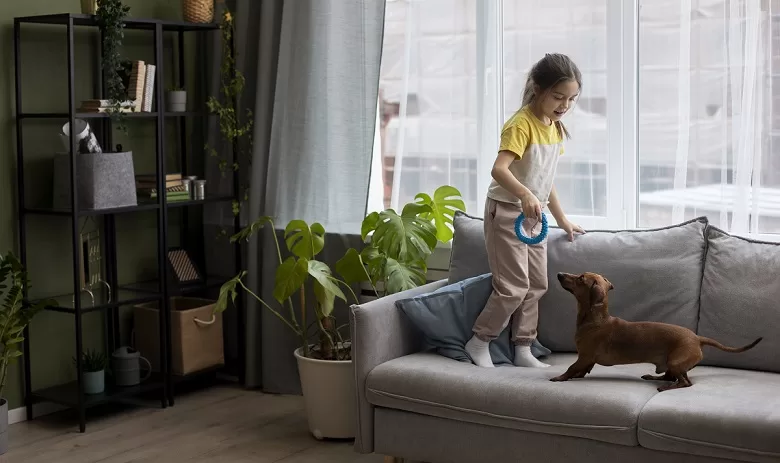Tips for Renting to Tenants with Pets
You may find it challenging to keep your pets happy and keep your home in good shape if you are a renter with pets. I have a rental home and it is hard to find a renter without a pet. This means that you need to make extra preparation for potential damage to your property that can be caused by pets.
For those that find the perfect place for rent that allows pets the next step is learning how to maintain the home if you have pets. The humane society has put together some excellent information for those who have pets and are looking to rent a home or apartment.
While allowing your pet to play in your home or apartments for rent in Chattanooga, TN, or anywhere across the country, here are some valuable tips.
Make a larger deposit
To maintain a rental house in good condition, you must take the first step before even moving in. In most rental properties across the country, pets are allowed as pets, but in many cases, a higher security deposit is required to rent a property with pets. Depending on your landlord or property manager, there might also be a one-time pet fee that must be paid or added to your monthly rent. If anything is damaged, the extra money provides some cushion for the landlord. Also, it shows your confidence in your pet’s behavior by putting money into it. Don’t be naive, a landlord will demand (and has the right to) that his/her home is returned to the condition it was in when you moved it, so treat this seriously.
Schedule Outside Time

The lack of space in rental properties is one of the most challenging things for pets. Make sure you scout your neighborhood’s outside space before you move in. Pets can have plenty of space to run around in a rental house that has a large yard. Look for nearby parks, trails, or dog parks in a smaller property with limited outdoor space. It would be best if you made it a habit to take your pet outside regularly. Allowing them to run around can relieve their energy and make spending time indoors more enjoyable.
It doesn’t matter if your pet doesn’t like running outside; fresh air can make them happier and boost their mood. Don’t miss the opportunity to spend time outdoors and include it in your day.
Pet Training
Setting rules and training your pet are essential to maintaining a rental house.
It may depend on the house and pet, but rules include not scratching furniture, using an inside litter box or going outside to potty, and staying in the gated yard. You should train your pet to follow the rules and to know them. Consider bringing in outside help if your pet struggles to follow the rules. Pet training programs are available at most pet stores. A pet training class can be found at PetSmart, for example.
Making loud noises and running around is not ok for your pet. Training them will help them learn the difference. Your pet will be more well-behaved, your house will be better maintained, and your neighbors will be happier.
Fragile areas should be protected
Make barriers your pet can’t get through if you’re concerned that your pet will damage an architectural detail or a window in the house. Keeping the door closed or moving the furniture around could help prevent your pet from getting in. Preventing damage by protecting at-risk areas is an excellent preventative measure.
Pet Sitters Outside
Pet-owning renters often struggle to know what to do with their pets while away from home. In the same way that kids forget the rules when left alone, pets can do the same. When owners are not at home, neighbors complain most about noisy pets. You may consider hiring an outside pet sitter if your pet has difficulty being left alone or if your schedule frequently leaves your pet at home.
In most cities, you can take your pet to a pet daycare facility where they can play with other pets while being supervised by an adult. Others have someone check on their pet throughout the day, while others bring their pets to a pet sitter’s house for one-on-one time.
Pets do not preclude you from being a great tenant. Please keep your pets happy and healthy by setting boundaries and rules and giving them other outlets.

Think about changing your flooring.
Several flooring options are easier to clean and maintain than carpet, such as tile and hardwood. Make your floors odor-resistant by sealing them with polyurethane. It will make them more accessible for you and your tenants to clean. Alternatively, some form of covering may be an option as well. Carpets are not ideal as they are the first and easiest to get damaged.
Keep your walls, windows, and doors protected.
Make your rental walls easy to clean by painting them in semi-gloss, high-gloss, or satin finishes. To minimize the temptation for pets to chew or scratch, keep the walls smooth. You can drastically reduce scratches from fur tenants by adding Lucite panels to doors and windows.
Conclusion
There is an understandable nervousness among many landlords when renting to pet owners. Several people allow their pets to damage their property, disturb their neighbors, and generally give pet-owning renters a bad reputation because of those actions. It turns out, however, that these tenants are the exception to the rule. Renters, just like you, should be able to see landlords who value their rental properties and ensure their pets are not a pain to other tenants.

